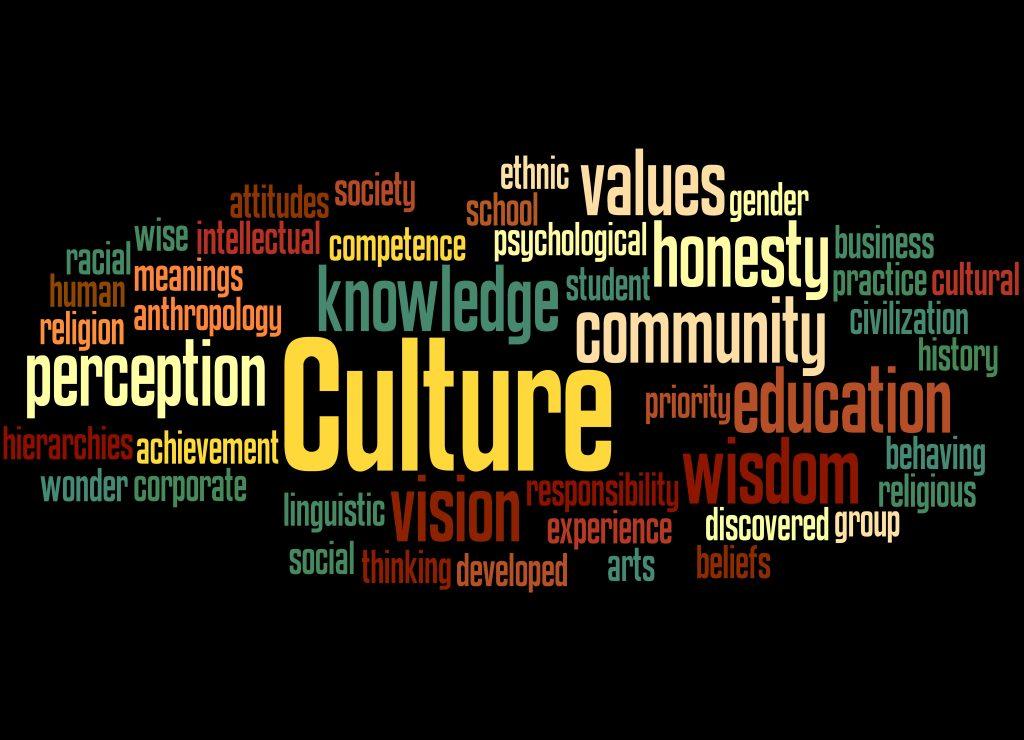
Cultural competence barriers in Social Work can include lack of cultural knowledge, lack of cultural training, and language.
Cultural competence is the ability to appropriately understand and interact with people of different cultures or backgrounds. This includes understanding the beliefs, values, language, and cultural practices of a particular culture.
It also includes being able to recognize and accept cultural differences and be sensitive to the needs and feelings of individuals from diverse backgrounds. This ability is essential for effectively engaging in communication, collaboration, and problem-solving with individuals from different backgrounds. This ability can be developed through practice and learning, and can lead to greater cultural awareness, improved decision-making, increased understanding of diverse perspectives in health care systems, and better relationships among people from different backgrounds.
Cultural competence is especially important in the fields of healthcare, education, social services, and public administration, where professionals must interact with diverse populations on a daily basis. However, it is applicable to any profession or context where individuals of various backgrounds interact with cultural and linguistic differences.
Defining Cultural Competence in Social Work
According to the Council on Social Work Education (CSWE), cultural competencies are defined as, “processes that promote effective interactions with individuals of all cultures based on curiosity and respect about difference related to language, class, ethnicity (race), and religion. This perspective affirms the dignity of individuals, families, and communities and informs practice with individuals, families, groups, communities, and organizations or health system in roles that include direct service providers, health care providers, administrators, and change agents.”

Standards and Indicators for Cultural Competence in Social Work Practice
The National Association of Social Work also has a sixty-page guide called Standards and Indicators for Cultural Competence in Social Work Practice. The NASW “promotes and supports the implementation of cultural and linguistic competence at three intersecting levels: the individual, institutional, and societal. Cultural competence requires social workers to examine their background and identities while seeking out the necessary knowledge, skills, and values that can enhance the delivery of services to people with varying cultural experiences associated with their race, ethnicity, gender, class, sexual orientation, religion, age, or disability [or other cultural factors].”
The NASW requires that social workers consider socioeconomic and cultural factors in their work with clients. These factors may include family norms, the influence of spirituality or religions in clients’ lives, ethnic traditions, and language. They also must be aware of power differentials between themselves and their clients. The NASW urges social workers to understand the dynamics of racism, power, and oppression in their practice. Finally, the CSWE and NASW urge schools to recruit a diverse student body into the field — one that matches the changing ethnic and racial composition of the U.S. and that is prepared to work with diverse groups all over the country.
Cultural Competence as Ethical Practice
Cultural competence as a professional requirement in social work also is outlined in the Social Work Code of Ethics. It is defined in section 1.05 of Code which is about cultural awareness and social diversity. This section covers three facets of social workers’ responsibilities in this area. The first overarching requirement is that “Social workers should understand the culture and its function in human behavior and society, recognizing the strengths that exist in all diverse cultures”
The Code, in this section, also requires social workers to be knowledgeable about their clients’ cultures and be able to apply this knowledge to practice. It requires social workers to understand the nature of social diversity and oppression in society as it applied to a host of personal characteristics including “race, ethnicity, national origin, color, sex, sexual orientation, gender identity or expression, age, marital status, political belief, religion, immigration status, and mental or physical ability.” Finally, this section requires social workers to be aware of cultural and other differences that may impact clients’ use of technology.
Under Section 6.04, Social and Political Action, the Code of Ethics also discusses social workers’ responsibilities to the broader society to further cultural awareness and appreciation. It places responsibility on social workers to advocate for social policies that respect differences and “support the expansion of cultural knowledge and resources.” Social workers also are expected to “advocate for programs and institutions that demonstrate cultural competence.” Cultural competence in advocacy and policy practice is described as being in furtherance of equity and social justice, and something that all social workers should strive for.
The Council on Social Work Education is a national organization that accredits social work programs, holds conferences and training, conducts and sponsors research, and provides curricular support to schools of social work. The re-accreditation process for social work programs requires that schools explain how they will educate students about cultural competency. In most social work programs students learn about cultural competence in foundational courses.

Evidence-Based Practice and Cultural Competence
Cultural competence is critical to successful practice in all areas of social work practice and advocacy including in mental health practice, child welfare, education, work with low-income individuals in community agencies, hospital social work, health literacy, and hospice. In conducting evidence-based practice, social workers must seek out research and data on the effectiveness of interventions not just for majority populations but for different cultural and ethnic groups as well. Many evidence-based practices and programs have been modified to be more effective for specific cultures and ethnic groups.
Barriers to Cultural Competence
Barriers to cultural competence in social work include an unwillingness or disinterest among some practitioners to learn about different cultures or ethnic groups. Some social workers may lack experience and knowledge with certain groups and fail to uphold their ethical responsibility to learn about their clients.
A lack of cultural humility is another barrier to cultural competence. According to the NASW, cultural humility involves having a non-paternalistic attitude towards clients from different socioeconomic groups, and towards marginalized and oppressed groups. Cultural humility requires clinicians to learn from culturally diverse clients and empower clients and let them be experts on their own culture. It involves careful listening and reflection. A lack of cultural humility and a lack of interest and knowledge in different cultures is both unacceptable and social workers with such attitudes should think about finding a new career. Here are a few examples.
Language: Language barriers can be a major obstacle when trying to bridge cultural differences. Poor comprehension of a foreign language can impede the flow of information and understanding.
Values and Beliefs: Values and beliefs can be very different between cultures. When there are different opinions, people of differing cultures may find it difficult to see the other’s point of view.
Stereotypes and Prejudices: Stereotypes and prejudices can lead to misunderstanding between cultures. These beliefs can fuel hostility and a lack of trust, making it difficult to form meaningful connections.
Conflict of Interests: Different cultures have different goals and interests, making collaboration difficult. This can also lead to antagonism if one culture feels its interests are being threatened.
Social Customs and Practices: Differences in social customs and practices can lead to misunderstandings and offense. It is important to familiarize yourself with the culture of the people you are interacting with.
Poor Intercultural Communication: Poor communication between cultures can lead to frustration and misunderstanding. Miscommunications can cause conflict if the expectations of both sides are not clearly expressed.
Lack of Training is a Barrier
There are additional barriers to cultural competence including a lack of training, a lack of guidance given by employers or agencies, prejudice on the part of employers who might block social workers from gaining more knowledge and practice experience with diverse clients. Some social workers may have previously worked in a less diverse environment and when they move to a new community or agency, do not have the requisite experience to work with a population of clients they are unfamiliar with. In this case, agencies can be supportive and provide training and guidance, and supervisors can also provide needed guidance. A social worker lacking in cultural competence can learn about culturally responsive resources in the community that could help their clients.
Language as a Barrier to Cultural Competence
Language can certainly be another barrier to cultural competence and cultural differences. According to the NASW, social workers should strive to learn a new language if several clients speak a different language. If this is not possible, they should make use of culturally competent interpreters and translated materials.
Of course, a social worker should be bilingual if he or she is working in a community where a language other than English is common. Agencies have a responsibility to recruit interns and employees who have the requisite language skills to communicate with mono-lingual or bi-lingual clients and their families. This can help in many ways like improve health outcomes and it defines cultural competence
What Are Steps Social Workers Can Take to Provide Culturally Sensitive Care
Develop an understanding of their own cultural background and values: Social workers should come to understand their own cultural and value systems before being able to provide culturally sensitive care. This includes recognizing one’s own beliefs, prejudices, and biases, in order to be aware of how these might influence their practice.
Learn about the background of their clients: Social workers should become familiar with the backgrounds of their clients, including ethnicity, race, language, linguistic differences, religion, values, customs, and culture. This is key for various minority groups. This includes taking the time to learn and understand the unique combination of factors that contribute to an individual’s culture.
Incorporate culturally sensitive care into every stage of service delivery: This begins at the initial point of contact and works all the way through the service delivery process. At each stage, social workers should maintain sensitivity to culture and adapt policies and practices to reflect this.
Leverage cultural knowledge and resources: Social workers need to be aware of where they can acquire information on the cultures of their clients. This could be through consulting with subject matter experts such as interpreters and non-English language resources to promote cultural competence.
Acknowledge and respect cultural differences: Culturally sensitive care requires social workers to be respectful of differences in culture, understanding that the social/structural constraints of culture may have an impact on the decisions that people make.
Implement strategies to ensure equitable access: Social workers should look for ways to ensure that their services are culturally competent, and that their clients’ needs and preferences are met. This could include providing bilingual materials, offering culturally appropriate services, or using other culturally competent strategies.
Cultural Competnece Education is Ongoing
A final barrier is that some social workers or students may simply feel they are not culturally competent and that this is an area of ethical practice they struggle with. They may shy away from certain placements or career opportunities for this reason. Social workers who are admittedly lacking in some form of cultural competence should not be shamed, but rather should be provided with guidance, training, support, and knowledge.
- Culturally competent care for health care services for minority health
- Cross cultural health literacy
- Culturally competent practices
- Cross cultural communication in health care
- Helping with health care disparities in cultural barriers
- Provide interpreter services for those with language barriers in different cultural groups in the health care system
- Improve the health care delivery system with culturally competent care
- Improve cultural competence in health care
- Provide cross cultural awareness for healthcare providers and health care organizations providing culturally competent care
- Provide cultural competence training in health care for healthcare providers about diverse communities and cultural sensitivity, health outcomes for racial and ethnic minorities, culturally competent services.
- Help with health literacy for a healthcare provider in regards to information about cultural groups and health disparities, cultural diversity, patient satisfaction, cross cultural encounters, diverse patients
Social workers will vary in their levels of cultural competence and social work organizations must provide continuing education, support, and training to help social workers fulfill their ethical responsibility to deliver culturally competent practice.
Related:

